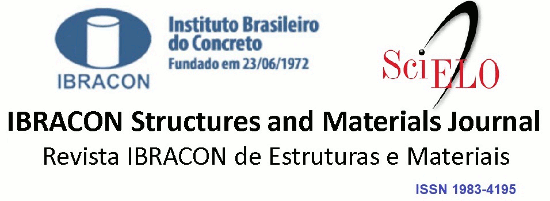abstract:
The volume of waste generated by ready-mix concrete (RMC) plants in Brazil is significant. According to Oliveira et al. [1] waste from construction and demolition in Brazil was approximately 45-79 million tons and most of those waste is sent to landfills (79%). This study presents an assessment of the RMC plant waste reduction capacity using 3 different methods: (a) reuse of concrete in the fresh state by using hydration-stabilizing admixtures (HSA); (b) recycling of concrete aggregates by separating the aggregates from the cement paste before the concrete hardens; (c) recycling of hardened concrete as aggregates through the crushing process. Results indicated that concretes with compressive strengths up to 25.0 MPa are more effective in reducing CO2 emission and consequently CO2 footprint when using method (b); if evaluating higher resistance classes, method (a) was the most effective.
Keywords:
ready mix concrete waste; CO2 footprint; field test; recycled aggregate; hydration stabilizing admixtures

 Thumbnail
Thumbnail
 Thumbnail
Thumbnail
 Thumbnail
Thumbnail
 Thumbnail
Thumbnail
 Thumbnail
Thumbnail




